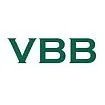- within International Law topic(s)
- with Finance and Tax Executives and Inhouse Counsel
- with readers working within the Banking & Credit, Healthcare and Media & Information industries
On 6 July 2011, the European Commission announced that it has closed its antitrust investigation into allegations by Spanish pharmaceutical company Almirall that the German pharmaceutical company Boehringer Ingelheim filed for unmeritous patents in the area of new treatments for lung diseases and, more specifically, new treatments of chronic obstructive pulmonary disease ("COPD").
Boehringer is the market leader in the treatment of COPD. In 2003, it filed patent applications for new treatments of COPD relating to three broad categories of active substances. The categorical substance-based applications were so broad that they included a new active substance that Almirall had discovered. Almirall protested that the applications were unmeritous and that, if granted, could block or considerably delay the entry of its own competing medicines.
The Commission opened a formal investigation into the matter in February 2007 but subsequently suggested to the two parties that they try to find a "mutually acceptable solution" to their dispute. According to the terms of the settlement agreement that the parties have now reached, Boehringer has agreed to remove the alleged blocking positions for Europe and also to grant a licence for two countries outside Europe. This lifts the obstacles to the launch of Almirall's products. The Commission confirmed that the settlement agreement was the "most efficient and speedy way to ensure that consumers will be able to benefit from Almriall's product" and has closed the case.
News of an end to the Boehringer case came on the same day that the Commission published the results of its second monitoring exercise of patent settlements in the pharmaceutical sector (see VBB on Competition Law, Volume 2011, No. 2). The results of this exercise have revealed a "continuing decline" in the number of such agreements that raise EU competition law concerns.
Problematic patent settlement agreements are typically those where an originator company pays to delay entry of a generic drug. The aim of the Commission's monitoring exercise was to better understand the use of patent settlements in the EU and to help identify those that might need further scrutiny. The second monitoring exercise has identified 89 patent settlement agreements between originator and generic companies in 2010. This compares with 207 such agreements during the eight year period covered by the inquiry into the pharmaceutical sector concluded in July 2009 (see VBB on Competition Law, Volume 2009, No. 7). The results of the earlier sector inquiry had revealed that almost one in every four patent settlements between originator pharmaceutical companies and generic manufacturers was potentially problematic from an antitrust perspective. In the latest review, in contrast, only 3% of the 89 settlements raised possible issues.
The monitoring exercise will be repeated by the Commission in 2012.
The content of this article is intended to provide a general guide to the subject matter. Specialist advice should be sought about your specific circumstances.

